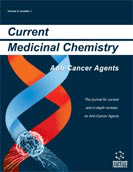Abstract
Recently, the field of oncology has witnessed the introduction of several effective chemotherapeutic agents. Still, not all cancers respond to the use of conventional chemotherapy and thus combination therapy is an emerging weapon in the battle against cancer. There is emerging evidence in support of the use of Monoclonal antibodies (MoAbs) in cancer therapy. The mechanisms behind their efficacy are multifaceted; they can kill tumor cells through antibody-dependent cell-mediated cytotoxicity (ADCC), complement-dependent cytotoxicity (CDC), and apoptosis as well as target ligands or growth factor receptors favoring tumor growth. The interaction of the Fc domains of antibodies with the Fcγ (gamma) receptors is an essential prerequisite for biological response to antibodies, including ADCC. This interaction is strongly regulated and is largely dependent upon receptor conformation and number. It is accepted that germ-line single nucleotide polymorphisms (SNPs) and copy number variations (CNVs) have the potential to predict the outcome of therapy. The possibility of predicting patients response to monoclonal antibody therapy is of particular importance, as response rates are moderate, with the risk of serious side effects all at a high financial cost. This patent chapter provides an insight into the role of Fcγ receptors (FcγRs) genetic variation in Monoclonal Antibody-based anti-cancer therapy.
Keywords: ADCC, Alemtuzumab, Bevacizumab, cancer, Cetuximab, chemotherapeutic agents, copy number variations, drug responses, drug toxicity, engineered antibodies, Fc gamma receptors, genetic polymorphism, monoclonal antibody-based therapy, Ofatumumab, oncology, personalized medicine, pharmacogenomics, single nucleotide polymorphism, Rituximab, Trastuzumab.






















